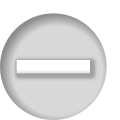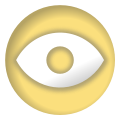News and notes
Opinion split over Flagged Revisions
The Wikipedia community is divided over whether English Wikipedia should attempt a trial of the FlaggedRevisions MediaWiki extension. In a straw poll, active since January 2 and advertised through the watchlist sitenotice, nearly 500 editors have voiced their opinions, with about three-fifths in favor of a trial run. Many who oppose Flagged Revisions see it as a blow to Wikipedia's "anyone can edit" philosophy, while supporters see it as a path to improving the reliability of Wikipedia and discouraging vandalism. The highly configurable extension could also be used to incorporate detailed quality assessments, in addition to screening out unhelpful edits. A report from German Wikipedia, which has been using Flagged Revisions for several months, describes some of the positive and negative aspects of their implementation of Flagged Revisions.
Proposal for assigning CheckUser, Oversight access
The new Arbitration Committee has proposed a more open process for granting users the CheckUser and Oversight functions. In the past, these functions have been limited to members and former members of the Arbitration Committee and a small number of editors chosen by the committee. Under the proposed system CheckUser and Oversight would be assigned through an election process, in which only candidates vetted beforehand by the committee could run.
A notable hoax?
For a Fall 2008 course on "Lying About the Past" at George Mason University, historian T. Mills Kelly and his students propagated a hoax, the story of 18th century pirate Edward Owens. Kelly, who had used Wikipedia in past courses (see previous story), had his students create a Wikipedia entry as part of the hoax: Edward Owens. After Kelly and his students revealed the hoax near the end of the course, the article was rewritten to describe the hoax itself and was put up for deletion; the result was "no consensus" and the article was moved to Edward Owens (hoax). A second deletion discussion started January 5.
Scandinavian language Planet Wikimedia created
On 15 December 2008, the Scandinavian language Planet Wikimedia was created. Planet Wikimedia is a blog aggregator collecting blogs by Wikimedians in one place, available in ten other languages (see Meta for a list). The Scandinavian language Planet Wikimedia is the first of its kind, allowing for blogs in all North Germanic languages: Danish, Faroese, Icelandic, Norwegian and Swedish. The interface has been translated to all of these languages, but the blog content is shared between all languages, which is possible due to the high degree of mutual intelligibility between these languages. As of publication, the Planet has twelve blogs attached – six in Swedish, four in Norwegian and two in Danish.
Wikibooks logo redesign
Wikibooks has chosen a new logo for the project, and are now in the process of discussing the typography and slogan.
Milestones
So far in 2009:
- The Wikipedia of Ripuarian languages reached its millionth edit in the early hours of the new year. The article Prositt Neujohr! was created, about a traditional new year morning greeting.
- The Sakha Wikipedia reached 1,000 articles.
- The Serbian Wikipedia reached 70,000 articles with Crni biseri (Black Pearls).
- The Simple English Wikipedia reached 50,000 articles.
- The Old Belarusian Wikipedia reached 15,000 articles.
- The Võro Wikipedia reached 2,000 articles.




Discuss this story